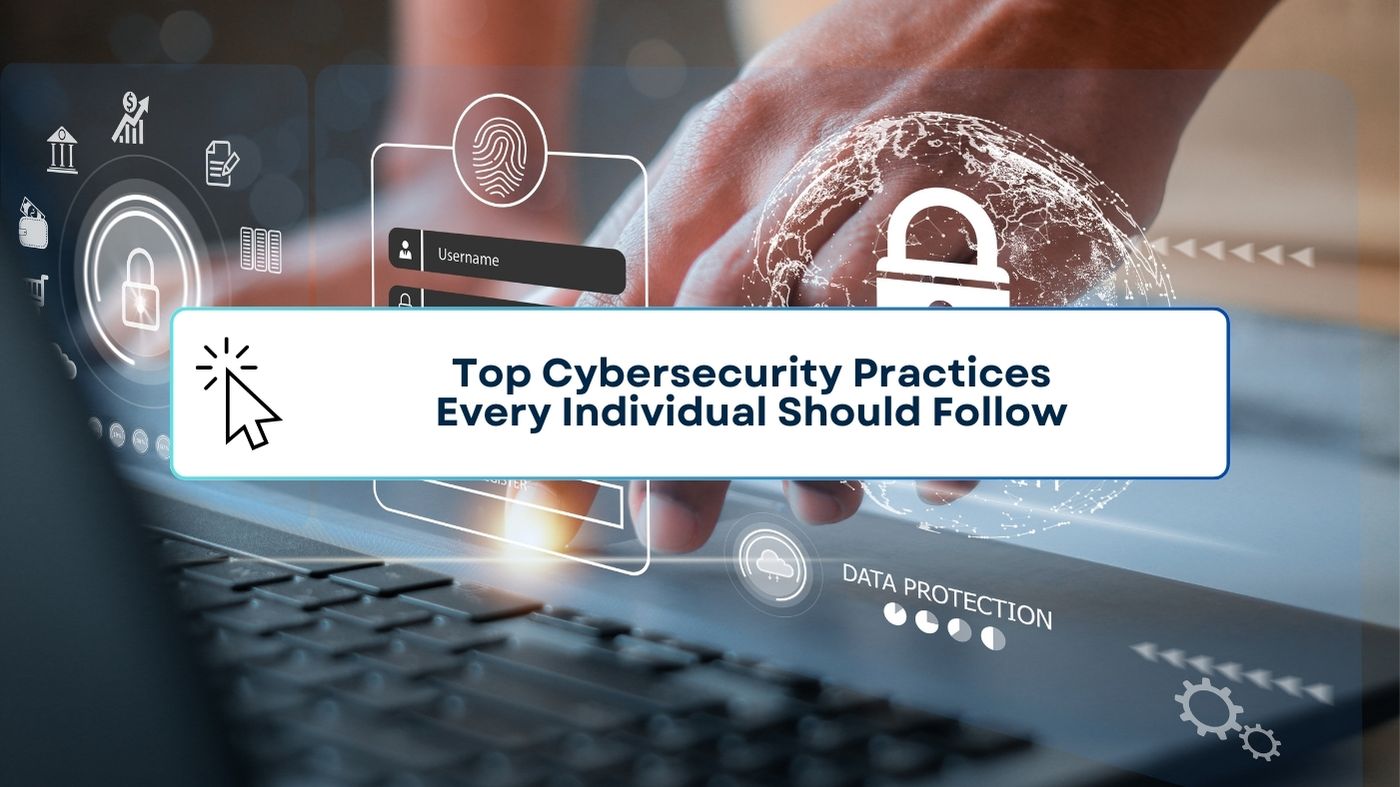In today’s digital age, safeguarding your personal information online has never been more critical. Cyber threats are evolving, and without proper precautions, you could fall victim to data breaches, identity theft, or malware attacks. Here are the top cybersecurity practices every individual should follow to stay protected.
1. Use Strong, Unique Passwords
One of the simplest yet most effective ways to protect your online accounts is by using strong, unique passwords for each site. Avoid using easily guessable passwords like “password123” or “123456.” Instead, create complex passwords that include a mix of uppercase and lowercase letters, numbers, and special characters. Consider using a password manager to keep track of your passwords securely.
2. Enable Two-Factor Authentication (2FA)
Two-factor authentication adds an extra layer of security by requiring a second form of verification in addition to your password. This could be a code sent to your phone, a fingerprint scan, or a security token. Enabling 2FA on your accounts makes it significantly harder for cybercriminals to gain unauthorized access.
3. Be Wary of Phishing Scams
Phishing scams are deceptive attempts to steal your personal information by pretending to be a trustworthy entity, like a bank or a popular website. Be cautious of unsolicited emails, messages, or phone calls asking for sensitive information. Always verify the source before clicking on links or downloading attachments.
4. Keep Your Software Updated
Software updates often include important security patches that protect your devices from vulnerabilities. Regularly updating your operating system, browser, and applications ensures you have the latest protections against cyber threats. Enable automatic updates whenever possible to stay ahead of potential risks.
5. Use Secure Wi-Fi Connections
Public Wi-Fi networks are convenient but often lack adequate security measures, making them a prime target for cybercriminals. Avoid accessing sensitive information, such as online banking or shopping, over public Wi-Fi. Instead, use a virtual private network (VPN) to encrypt your internet connection and keep your data safe.
6. Backup Your Data Regularly
Regularly backing up your data ensures you have copies of your important files in case of a cyber attack, hardware failure, or accidental deletion. Use both cloud storage and external drives to create multiple backups. This practice will help you quickly recover your data and minimize downtime.
7. Educate Yourself and Stay Informed
Cybersecurity is a constantly evolving field, and staying informed about the latest threats and protection strategies is crucial. Follow reputable cybersecurity blogs, subscribe to newsletters, and participate in online forums to keep your knowledge up to date.
Get in Touch with TN Computer Medics Today!
Need more tips on how to protect your digital life? Have questions about implementing these cybersecurity practices? Contact us today to learn more and get personalized advice from our experts. We’re here to help you stay safe online!

